Shalimar the Clown
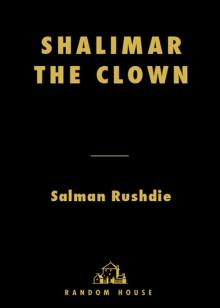

Author: Salman Rushdie
Category: Fiction
Published: 2005
Series:
View: 368
Read OnlineShalimar the Clown is a masterpiece from one of our greatest writers, a dazzling novel that brings together the fiercest passions of the heart and the gravest conflicts of our time into an astonishingly powerful, all-encompassing story.
Max Ophuls’ memorable life ends violently in Los Angeles in 1993 when he is murdered by his Muslim driver Noman Sher Noman, also known as Shalimar the Clown. At first the crime seems to be politically motivated – Ophuls was previously ambassador to India, and later US counterterrorism chief – but it is much more.
Ophuls is a giant, an architect of the modern world: a Resistance hero and best-selling author, brilliant economist and clandestine US intelligence official. But it is as Ambassador to India that the seeds of his demise are planted, thanks to another of his great roles – irresistible lover. Visiting the Kashmiri village of Pachigam, Ophuls lures an impossibly beautiful dancer, the ambitious (and willing) Boonyi Kaul, away from her husband, and installs her as his mistress in Delhi. But their affair cannot be kept secret, and when Boonyi returns home, disgraced and obese, it seems that all she has waiting for her is the inevitable revenge of her husband: Noman Sher Noman, Shalimar the Clown. He was an acrobat and tightrope walker in their village’s traditional theatrical troupe; but soon Shalimar is trained as a militant in Kashmir’s increasingly brutal insurrection, and eventually becomes a terrorist with a global remit and a deeply personal mission of vengeance.
With sweeping brilliance, Salman Rushdie portrays fanatical mullahs as fully as documentary filmmakers, rural headmen as completely as British spies; he describes villages that compete to make the most splendid feasts, the mentality behind martial law, and the celebrity of Los Angeles policemen, all with the same genius.
But the main story is only part of the story. In this stunningly rich book everything is connected, and everyone is a part of everyone else. Shalimar the Clown is a true work of the era of globalization, intricately mingling lives and countries, and finding unexpected and sometimes tragic connections between the seemingly disparate. The violent fate of Kashmir recalls Strasbourg’s experience in World War Two; Resistance heroism against the Nazis counterpoints Al-Qaeda’s terror in Pakistan, North Africa and the Philippines. 1960s Pachigam is not so far from post-war London, or the Hollywood-driven present-day Los Angeles where Max’s daughter by Boonyi, India Ophuls, beautiful, strong-willed, modern, waits, as vengeance plays itself out.
A powerful love story, intensely political and historically informed, Shalimar the Clown is also profoundly human, an involving story of people’s lives, desires and crises – India Ophuls’ desperate search for her real mother, for example; Max’s wife’s attempts to deal with his philandering – as well as, in typical Rushdie fashion, a magical tale where the dead speak and the future can be foreseen.
Shalimar the Clown is steeped in both the Hindu epic Ramayana and the great European novelists, melding the storytelling traditions of east and west into a magnificently fruitful blend – and serves, itself, as a corrective to the destructive clashes of values it scorchingly depicts. Enthralling, comic and amazingly abundant, it will no doubt come to be seen as one of the key books of our time.
Max Ophuls’ memorable life ends violently in Los Angeles in 1993 when he is murdered by his Muslim driver Noman Sher Noman, also known as Shalimar the Clown. At first the crime seems to be politically motivated – Ophuls was previously ambassador to India, and later US counterterrorism chief – but it is much more.
Ophuls is a giant, an architect of the modern world: a Resistance hero and best-selling author, brilliant economist and clandestine US intelligence official. But it is as Ambassador to India that the seeds of his demise are planted, thanks to another of his great roles – irresistible lover. Visiting the Kashmiri village of Pachigam, Ophuls lures an impossibly beautiful dancer, the ambitious (and willing) Boonyi Kaul, away from her husband, and installs her as his mistress in Delhi. But their affair cannot be kept secret, and when Boonyi returns home, disgraced and obese, it seems that all she has waiting for her is the inevitable revenge of her husband: Noman Sher Noman, Shalimar the Clown. He was an acrobat and tightrope walker in their village’s traditional theatrical troupe; but soon Shalimar is trained as a militant in Kashmir’s increasingly brutal insurrection, and eventually becomes a terrorist with a global remit and a deeply personal mission of vengeance.
With sweeping brilliance, Salman Rushdie portrays fanatical mullahs as fully as documentary filmmakers, rural headmen as completely as British spies; he describes villages that compete to make the most splendid feasts, the mentality behind martial law, and the celebrity of Los Angeles policemen, all with the same genius.
But the main story is only part of the story. In this stunningly rich book everything is connected, and everyone is a part of everyone else. Shalimar the Clown is a true work of the era of globalization, intricately mingling lives and countries, and finding unexpected and sometimes tragic connections between the seemingly disparate. The violent fate of Kashmir recalls Strasbourg’s experience in World War Two; Resistance heroism against the Nazis counterpoints Al-Qaeda’s terror in Pakistan, North Africa and the Philippines. 1960s Pachigam is not so far from post-war London, or the Hollywood-driven present-day Los Angeles where Max’s daughter by Boonyi, India Ophuls, beautiful, strong-willed, modern, waits, as vengeance plays itself out.
A powerful love story, intensely political and historically informed, Shalimar the Clown is also profoundly human, an involving story of people’s lives, desires and crises – India Ophuls’ desperate search for her real mother, for example; Max’s wife’s attempts to deal with his philandering – as well as, in typical Rushdie fashion, a magical tale where the dead speak and the future can be foreseen.
Shalimar the Clown is steeped in both the Hindu epic Ramayana and the great European novelists, melding the storytelling traditions of east and west into a magnificently fruitful blend – and serves, itself, as a corrective to the destructive clashes of values it scorchingly depicts. Enthralling, comic and amazingly abundant, it will no doubt come to be seen as one of the key books of our time.
 Simply Complicated
Simply Complicated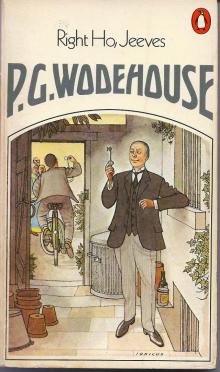 Right Ho, Jeeves
Right Ho, Jeeves The Afterlife: And Other Stories
The Afterlife: And Other Stories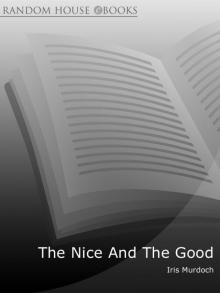 The Nice and the Good
The Nice and the Good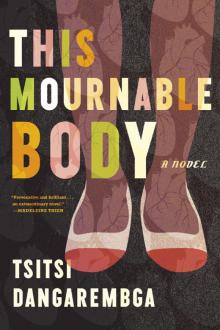 This Mournable Body
This Mournable Body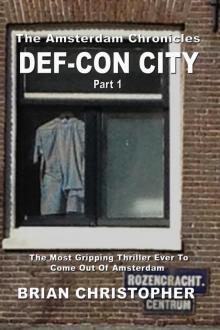 The Amsterdam Chronicles: Def-Con City Trilogy Part 1
The Amsterdam Chronicles: Def-Con City Trilogy Part 1 Party Favors
Party Favors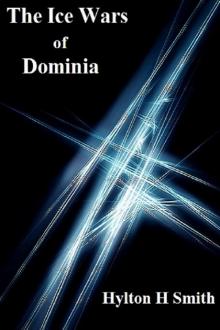 The Ice Wars of Dominia
The Ice Wars of Dominia